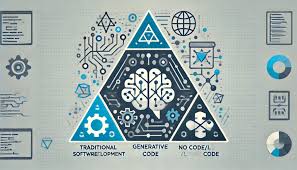Second Wave of AI Agents
The “second wave” of AI agents refers to the evolution of AI beyond simple chatbots and into more sophisticated, autonomous systems that can plan, execute, and deliver results independently, often leveraging large language models (LLMs). These agents are characterized by their ability to interact with other applications, interpret the screen, fill out forms, and coordinate with other AI systems to achieve a desired outcome. They are also seen as a significant step beyond the first wave of AI, which primarily focused on predictive models and statistical learning. Key Characteristics of the Second Wave of AI Agents: Examples and Applications: In 2023 Bill Gates prophesized AI Agents would be here in 5 years. His timing was off. But not his prediction. The Future of Computing: Your AI Agent, Your Digital Sidekick Imagine this: No more juggling apps. No more digging through menus. No more searching for a document or a spreadsheet. Just tell your device—in plain English—what you need, and it handles the rest. Whether it’s planning a tour, managing your schedule, or helping with work, your AI assistant will understand you personally, adapting to your life based on what you choose to share. This isn’t science fiction. Today, everyone online has access to an AI-powered personal assistant far more advanced than anything available in 2023. Meet the Agent: The Next Era of Computing This next-generation software—called an agent—responds to natural language and accomplishes tasks using deep knowledge of you and your needs. Bill Gates first wrote about agents in his 1995 book The Road Ahead, but only now, with recent AI breakthroughs, have they become truly possible. Agents won’t just change how we interact with technology. They’ll reshape the entire software industry, marking the biggest shift in computing since we moved from command lines to touchscreens. Consider Salesforce’s AgentForce. A platform driven by automated AI agents that can be trained to do virtually anything. Freeing staff up from mundane data entry and administrative work to really set them loose. Marketers can once again create content, but with the insights provided by AI. Sales teams can close deals, but with the lead rating details provided by AI. Developers can devote more time to writing code but letting AI do the repetitive pieces that take time away from awe inspiring development. Why This Changes Everything We’re on the brink of a revolution—one where technology doesn’t just respond to commands but anticipates your needs and acts on your behalf. The age of the AI agent is here, and it’s going to redefine how we live and work. By Tectonic’s Marketing Operations Manager, Shannan Hearne Like Related Posts Salesforce OEM AppExchange Expanding its reach beyond CRM, Salesforce.com has launched a new service called AppExchange OEM Edition, aimed at non-CRM service providers. Read more The Salesforce Story In Marc Benioff’s own words How did salesforce.com grow from a start up in a rented apartment into the world’s Read more Salesforce Jigsaw Salesforce.com, a prominent figure in cloud computing, has finalized a deal to acquire Jigsaw, a wiki-style business contact database, for Read more Service Cloud with AI-Driven Intelligence Salesforce Enhances Service Cloud with AI-Driven Intelligence Engine Data science and analytics are rapidly becoming standard features in enterprise applications, Read more











